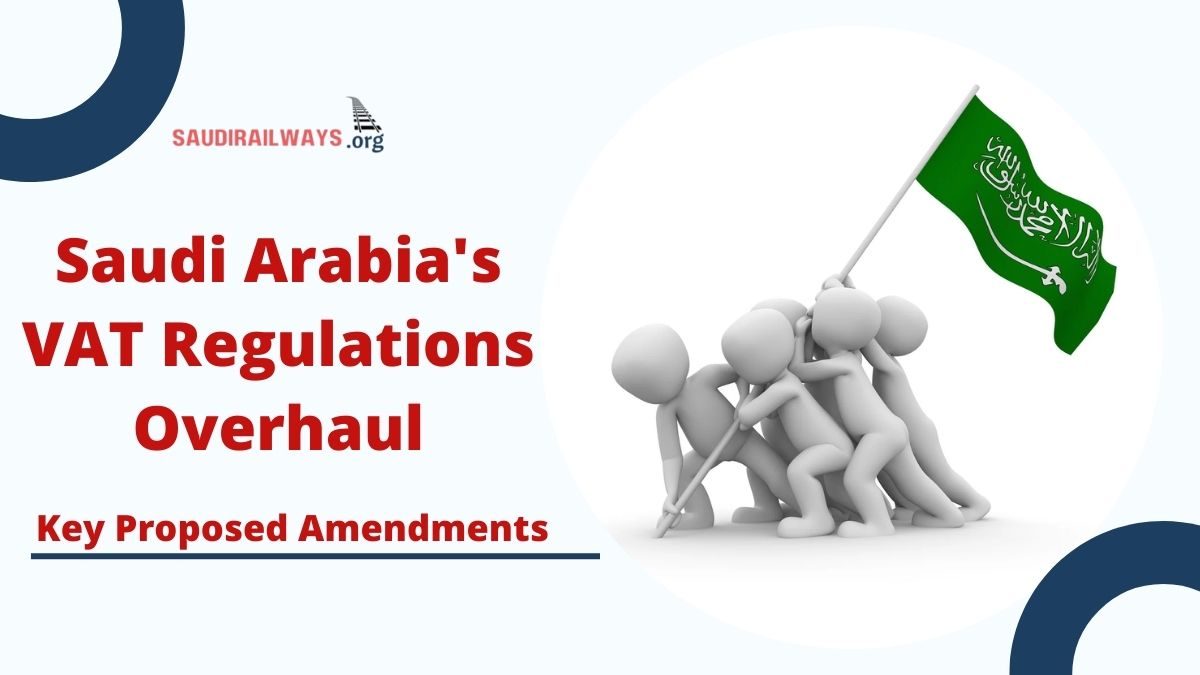In 2024, Saudi Arabia’s Zakat, Tax, and Customs Authority (ZATCA) introduced a wide-ranging set of amendments to its VAT Implementing Regulations. These proposals reflect the Kingdom’s commitment to modernizing tax compliance, enhancing transparency, and aligning its economic policies with Vision 2030 goals.
The amendments cover critical areas such as group registration, nominal supplies, electronic marketplaces, and refund processes, offering clarity for businesses and taxpayers.

Contents
- Key Amendments to VAT Regulations
- 1. Group Registration (Article 10, Article 11, Article 12)
- 2. De-registration and Transfers of Economic Activities (Article 13, Article 17)
- 3. Nominal Supplies (Article 15, Article 39)
- 4. E-Marketplace Regulations (Article 47)
- 5. Refunds and Credits (Article 69, Article 70, Article 73)
- 6. Taxable Supplies and Compliance (Article 14, Article 32)
- Enhancing Compliance and Business Practices
- Record Retention (Article 13, Article 66)
- Correction of Returns (Article 63)
- Implications for Businesses
- Vision 2030 Alignment
Key Amendments to VAT Regulations
1. Group Registration (Article 10, Article 11, Article 12)
Revised Criteria for VAT Groups
To ensure proper use of VAT grouping and mitigate tax evasion, ZATCA introduced strict eligibility rules:
- Taxable Persons: Every group member must independently qualify as a taxable entity.
- Ownership Threshold: At least 50% of the market value of all members must be controlled by the same person or entity.
- Exclusions: Members operating in customs suspension zones or qualifying for refunds under Article 70 are barred from group registration.
Application Transparency
The relationship between group representatives and members must be documented and submitted to ZATCA. This ensures that:
- Activities by any group member are attributed to the entire group.
- Imports, exports, and input/output tax are treated as activities of the VAT group.
Authority to Amend Groups
ZATCA is empowered to:
- Cancel registrations retroactively or prospectively.
- Exclude non-compliant members.
2. De-registration and Transfers of Economic Activities (Article 13, Article 17)
Mandatory De-registration
Taxpayers must cancel VAT registration when transferring economic activities that result in business cessation. Notifications to ZATCA must occur within 30 days of the transfer.
Liabilities in Transfers
Suppliers and recipients are jointly responsible for pre-transfer tax obligations. The transferee does not inherit the supplier’s tax identification number, ensuring proper alignment with VAT rules.
3. Nominal Supplies (Article 15, Article 39)
Expanded Definition
Nominal supplies now include cases where:
- Goods are retained post-business closure.
- VAT deductions were previously claimed but require adjustments.
Adjusted Value of Deemed Supplies
Taxpayers must recalculate VAT on nominal supplies based on fair market value or original costs.
4. E-Marketplace Regulations (Article 47)
Liabilities for Digital Platforms
E-marketplaces facilitating sales are deemed suppliers and must collect VAT unless:
- Non-resident suppliers are clearly identified.
- The marketplace does not control billing, payment, or terms.
Definition of E-Marketplace
An e-marketplace includes websites, apps, and digital platforms that enable electronic transactions.
5. Refunds and Credits (Article 69, Article 70, Article 73)
Tourist Refunds
Tourists can claim VAT refunds on personal-use goods purchased in Saudi Arabia, excluding restricted items like tobacco or vehicles. Refunds are processed via authorized service providers.
Improved Refund Processes
Businesses must:
- Provide detailed documentation for refund claims.
- Meet a minimum refundable amount of 5,000 SAR.
Error Management
ZATCA may withhold refunds until discrepancies are resolved, ensuring fair treatment of claims.
6. Taxable Supplies and Compliance (Article 14, Article 32)
Taxable Services
New definitions clarify which services qualify as taxable under Saudi VAT law.
Exports
Goods sent to customs suspension zones qualify for 0% VAT, with clear rules on documentation and compliance.
Enhancing Compliance and Business Practices
Record Retention (Article 13, Article 66)
Taxpayers deregistering or transferring activities must maintain VAT records to ensure compliance during audits.
Correction of Returns (Article 63)
Errors resulting in underreported tax must be corrected promptly, with SAR 15,000 as the threshold for allowable adjustments.
Implications for Businesses
These amendments necessitate proactive adjustments from businesses, including:
- VAT Group Review: Reassess eligibility for VAT groups to align with new criteria.
- Digital Compliance: Update systems to manage e-marketplace VAT responsibilities.
- Nominal Supply Adjustments: Ensure proper valuation of retained goods or assets.
Vision 2030 Alignment
Saudi Arabia’s VAT reforms are an integral part of Vision 2030, which aims to diversify the economy and create a sustainable tax environment. By introducing these changes, ZATCA fosters investor confidence and enhances fiscal transparency.
Click here to know more.

I am a passionate technology and business enthusiast, constantly exploring the intersection where innovation meets entrepreneurship. With a keen eye for emerging trends and a deep understanding of market dynamics, I provide insightful analysis and commentary on the latest advancements shaping the tech industry.
